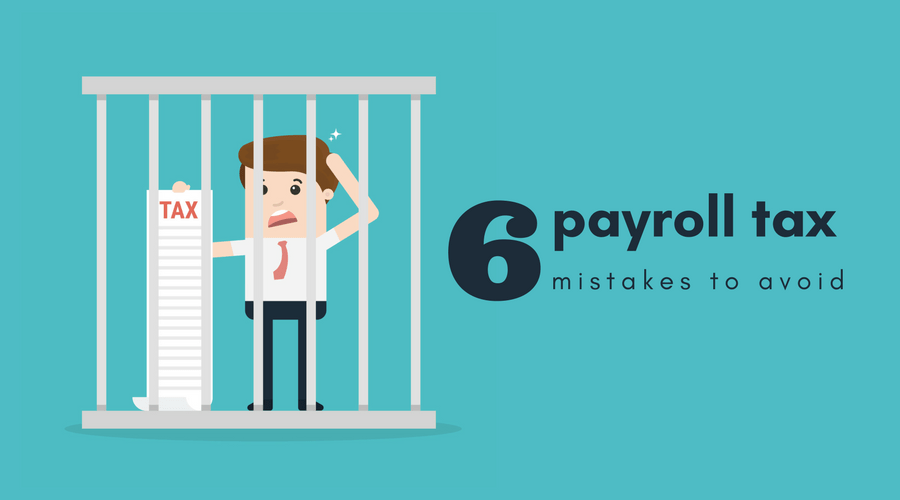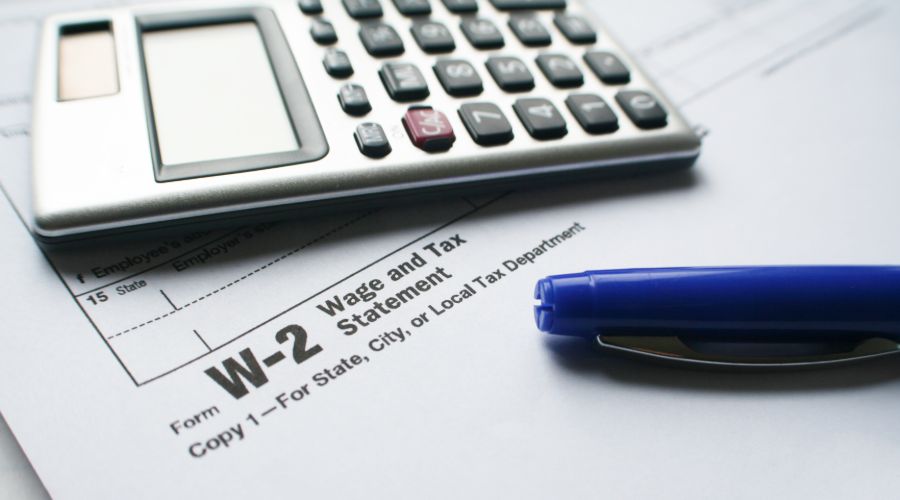6 Payroll Tax Mistakes to Avoid

Everyone makes mistakes, but some payroll tax mistakes can cost you big time. So, try to avoid them as much as possible.
1. Improperly Classifying Workers
When you hire employees, you have to pay payroll taxes on the employees’ wages and taxable benefits. Don’t try to get around paying those by classifying your employees as independent contractors.
The IRS and Department of Labor (DOL) have a pretty strict definition of who classifies as an independent contractor. If you claim a worker is an independent contractor, but they’re really an employee, you could be facing a very large tax bill:
- You can face penalties for not filing W-2s for those workers, even if you filed a 1099-MISC for them.
- You may be responsible for 40% of the employee share of Federal Insurance Contributions Act taxes (FICA) and 100% of the employer share. FICA taxes are Medicare and social security taxes withheld from an employee’s paycheck.
- If you didn’t withhold income taxes, then you may be responsible for some of that, too (you might be responsible for 1.5% of total wages).
- The IRS could also penalize you for failing to pay taxes. It could be 0.5% of all unpaid tax liability per month, up to 25% of your total tax liability owed.
If the IRS thinks that you purposely misclassified a worker, they can charge you even higher penalties. Plus, you might face criminal charges and jail time.
To avoid these penalties, be very careful before classifying someone as an independent contractor. For more information about who you can classify as an independent contractor, click here.
2. Reimbursing Travel & Other Expenses Under a Non-Accountable Plan
If you don’t have an IRS approved accountable plan, but reimburse your employees for travel and other expenses, your employees could face a larger than expected tax bill. If you don’t have an expense policy, or if it’s a non-accountable plan, then any expense reimbursement is taxable to the employee and subject to payroll taxes.
To avoid increasing your employees’ taxable wages, create an accountable plan. For more information about how to write an expense policy, click here.
3. Paying Off Debt Before the IRS
When you withhold taxes from your employees’ paychecks, you have to send those taxes and your share of payroll taxes to the IRS. If you choose, however, to use that money to pay off business debts, you could end up paying the IRS a lot more.
You could be held personally liable for those outstanding taxes and be charged the Trust Fund Recovery Penalty.
4. Ignoring Unemployment Claims
When an employee leaves, they aren’t necessarily eligible for unemployment benefits. For example, if they left on their own or were fired for serious misconduct (like sexual harassment or theft), then they cannot collect unemployment. That won’t stop a former employee, however, from filing a claim anyway.
Make sure you challenge an erroneous unemployment claims, or you’ll end up paying higher unemployment tax rates.
5. Not Maintaining Payroll Records
The IRS requires you to have your payroll records available if they ever ask for them. Usually, you should keep these records for at least four years. These records include:
- timesheets or other time records,
- expense accounts and reports,
- forms W-2,
- forms I-9,
- accident reports, and
- any other relevant payroll information.
6. Ignoring Form 8850
When you hire a new employee, they might be part of a targeted group that would entitle you to claim a tax credit through the Work Opportunity Tax Credit (WOTC).
You can’t guess who is part of a targeted group just by looking at them, so ask every new employee to fill out Form 8850 so you don’t miss out on a tax credit. Form 8850, Pre-Screening Notice and Certification Request for the Work Opportunity Credit, helps determine whether a new employee is part of a targeted group without assuming or discriminating.
The forms must be submitted to your State Workforce Agency (SWA) no later than the 28th calendar day after the employee starts working for you. So, ask each employee to fill out the form as they’re filling out their other onboarding paperwork.


